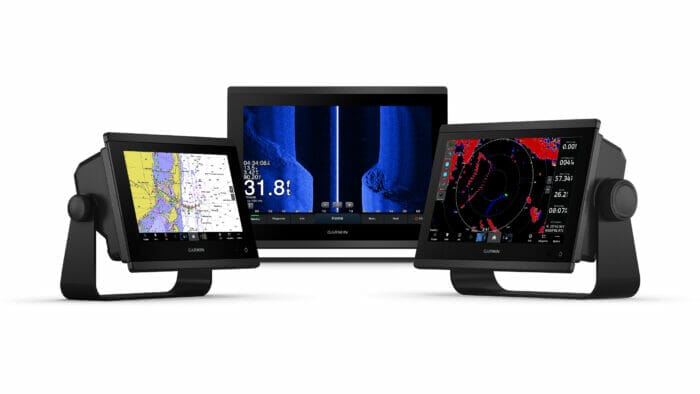
I just read a post over at Panbo on Garmin’s new top-of-the-line plotters that start at US$10,000 and go up from there.
And, of course, to take advantage of all the features we will need to spend a bunch more on supporting gear.
I’m sure those who are so inclined will be obsessing over all the cool features of these new plotters.
But to me the bigger question is the opportunity cost of this stuff: What else we could spend ten to twenty, or even more, boat units on?
A few suggestions for far more important things we could do with that much money on say a 40-foot cruising boat:
- Buy some brand new working sails.
- Buy an A or Code sail.
- Replace all the standing rigging and probably the running rigging too.
- Take the rudder off, and, if necessary, replace it.
- Take the keel off and check the keel bolts and hull joint, and put it back right.
- Buy and install a new engine.
All of the above will contribute far more to cruising safety and enjoyment than the ultimate plotter-based marine electronics system.
Does that include the keel, rigging and rudder? Yup. If we are at sea with even the slightest nagging suspicion that all is not well in those areas, we will not be having fun!
Got all that done and still have money in the bank? Sure, go buy a ten-grand plotter.
I get that we need a good navigation system, but that can be done for way less in a bunch of different ways.
Never forget to think about the opportunity cost of cool stuff.

Hi John,
There are projects and their attendant gear that promote the safe and efficient running of a boat and then there are hobbies: and hobbies can be fueled by people who have a lot of time and interest in a subject and those who have a lot of money to spare (or both together). It is good to ask the questions necessary to make distinctions between the two.
I am usually interested in the hobbies, as these people sometimes are paving the way for many of us to later follow: lithium battery use for example and more recently the ongoing efforts at electric drive and all electric galleys. There is always something learned, even in failure or frustration.
I do have a problem when these projects are flogged as 1. More “do-able” and “bullet-proof” than they actually are, or 2. When they are portrayed as “essential” to the running of the boat, especially when that “essential” is linked to safety. Commercial companies are often tempted by this latter portrayal.
I have found that, when I make the comment that a described project is more in the realm of a hobby than an important element in running the boat: those who have spent countless hours making their project work take umbrage at their efforts being characterized thus.
So, I am right with you on nailing down the essentials first: then I would include those activities that contribute to the safe running of the boat that are so often neglected by cruisers: crew-overboard drills and fire and flooding drills come quickly to mind.
And more recently, I have been reminded about how remiss many skippers are at ensuring that their crew/partners know how to run the boat: too many skippers do all the radio work, all the driving of the boat/dinghy, all the navigation, all the radar work, etc. It is too easy for many to fall into the skipper/passenger balance rather than do the work necessary for more of a partnership.
My best, Dick Stevenson, s/v Alchemy
Hi Dick,
I agree, it’s important to differentiate between things that contribute to a seaworthy offshore boat and things that are hobbies:
https://www.morganscloud.com/2016/01/08/marine-electronics-system-recommendations/
https://www.morganscloud.com/2017/10/29/seven-skills-we-dont-need-to-go-cruising/